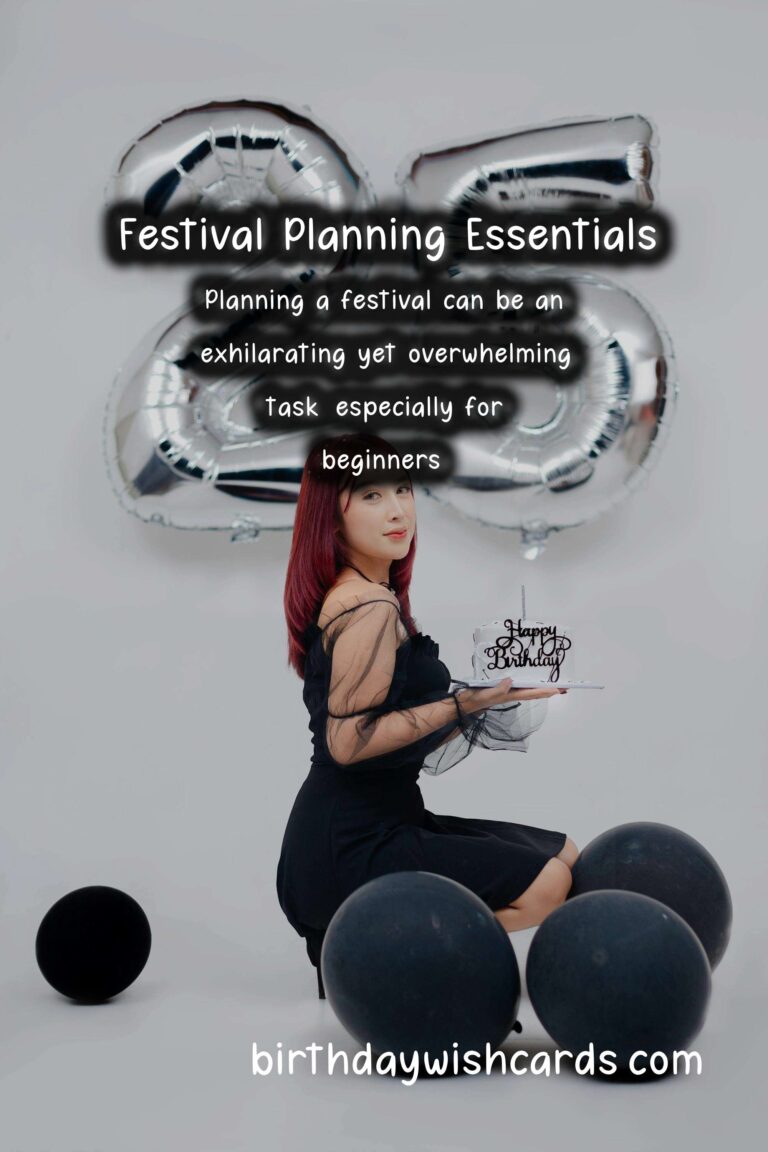
Planning a festival can be an exhilarating yet overwhelming task, especially for beginners. Festivals are events that bring people together to celebrate, share joy and create lasting memories. Whether you’re planning a music festival, food festival, or cultural festival, there are several key steps to ensure your event is successful. In this guide, we will break down the essential elements of festival planning for beginners.
1. Define Your Festival’s Purpose and Theme
Before diving into the logistical planning, it’s crucial to define the purpose of your festival. What do you want to achieve? Is it to showcase local talent, promote cultural heritage, or simply to bring joy to the community? Answering these questions will help shape your festival’s identity.
Additionally, select a theme that aligns with your festival’s purpose. This theme will guide your branding, marketing, and overall aesthetics, making it easier for attendees to understand the experience you’re offering.
2. Create a Budget
A well-structured budget is vital for the success of your festival. Begin by estimating all potential expenses, which include venue rental, permits, marketing, staffing, and entertainment. Also, consider how you will generate revenue, whether through ticket sales, sponsorships, or concessions.
Here’s a breakdown of common costs to consider:
- Venue rental
- Permits and insurance
- Marketing materials
- Equipment rentals (stages, sound systems)
- Staff and volunteers
- Entertainment fees
3. Choose a Venue
The venue is one of the most critical aspects of festival planning. It determines the atmosphere and accessibility of your festival. Consider factors such as:
- Capacity
- Accessibility for guests
- Facilities (restrooms, parking)
- Services (electricity, water access)
Make sure to visit several venues to find the best fit for your festival’s theme and expected attendance.
4. Obtain Necessary Permits and Licenses
Depending on your location and type of festival, you may need to secure certain permits and licenses. This can range from event permits to health and safety licenses. Check with local authorities early in the planning process to ensure you have everything needed to legally host your festival.
5. Line Up Entertainment and Vendors
Having engaging entertainment is key to attracting attendees. Depending on your theme, book musicians, speakers, or performers who resonate with your audience. It’s often beneficial to have a mix of established acts and local talent to create a diverse schedule.
As for vendors, consider reaching out to food trucks, local artisans, and craft vendors who align with your festival’s theme. Curate a blend of offerings that will delight your attendees.
6. Develop a Marketing Plan
Marketing is crucial to ensure your festival is well-attended. Start by defining your target audience and utilizing strategies to reach them, such as social media, flyers, email marketing, and community involvement.
Online Marketing Strategies:
- Social Media Advertising: Use platforms like Instagram, Facebook, and Twitter to promote your event.
- Email Newsletters: Keep potential attendees informed and excited leading up to the festival.
- Website: Create a dedicated website for your festival to provide information and sell tickets.
Offline Marketing Strategies:
- Posters and Flyers: Distribute in local businesses, community centers, and popular areas.
- Press Releases: Reach out to local newspapers and radio stations to cover your event.
7. Plan Logistics
Logistics may not be the most exciting aspect of festival planning, but it’s essential. It includes planning for crowd management, setup and teardown, safety, and sanitation. Have a detailed timeline and assign responsibilities to volunteers or staff.
8. Prepare for Challenges
No event goes perfectly, and it’s essential to anticipate potential challenges. Prepare emergency plans for weather-related issues, health and safety concerns, or technical difficulties. Having a well-trained team and adequate resources will alleviate stress during the event.
9. Evaluate the Festival
After the festival, take time to evaluate what went well and what could improve. Gather feedback from attendees, volunteers, and vendors to get a full picture of the event’s success. This will be invaluable for planning future festivals.
Conclusion
Planning a festival can be a daunting task, especially for beginners. However, with careful planning and organization, you can create a memorable experience for all attendees. Remember to stay focused on the festival’s purpose, budget wisely, and consider every detail from the venue to the marketing strategy. Happy planning!
Planning a festival can be an exhilarating yet overwhelming task, especially for beginners. A well-structured budget is vital for the success of your festival. 
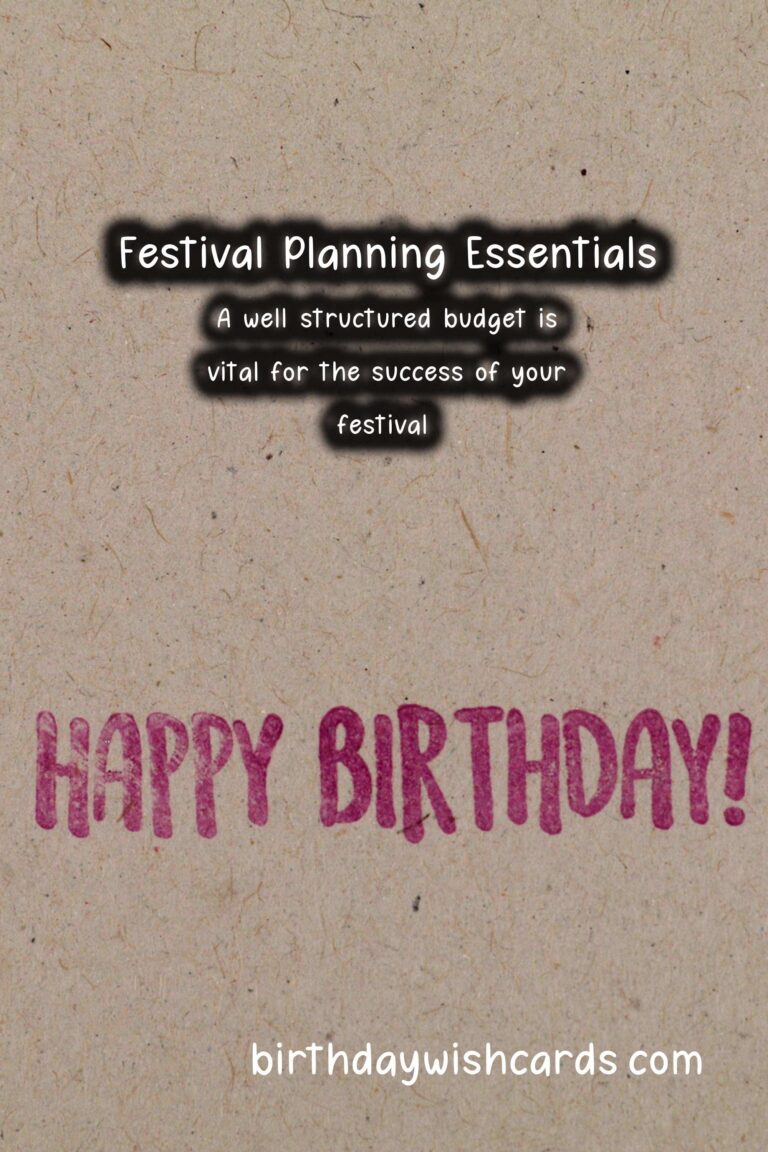

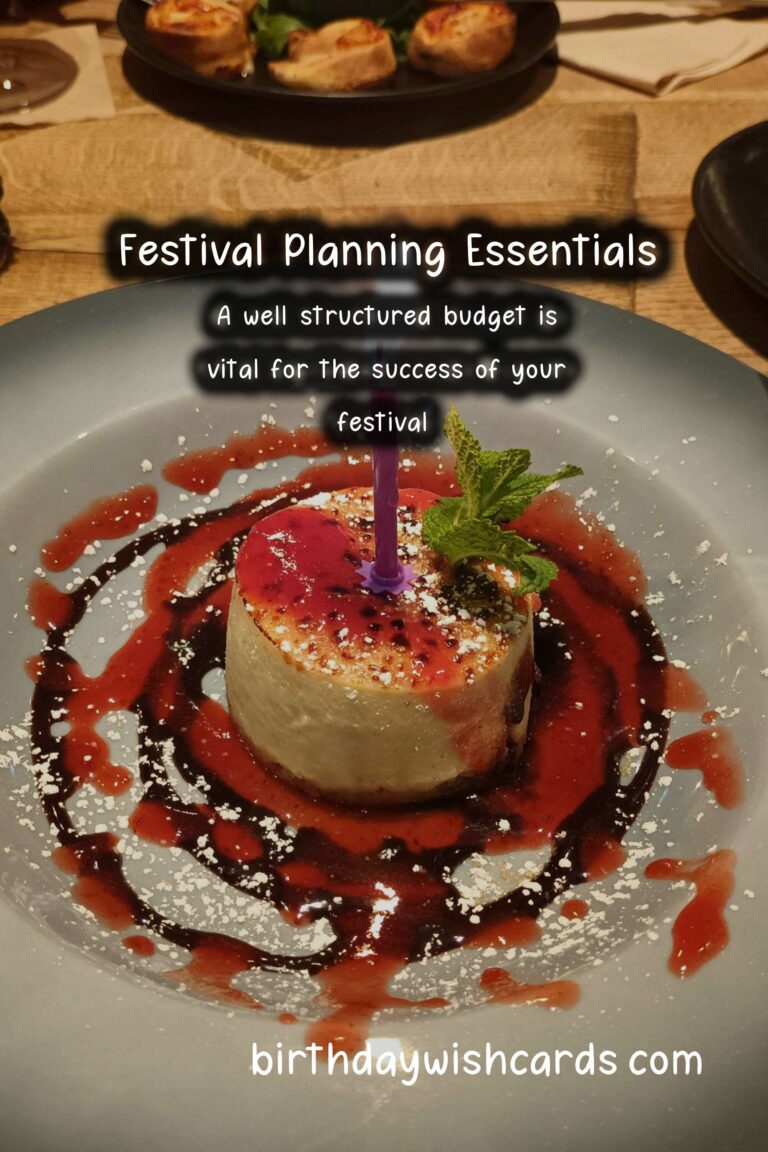
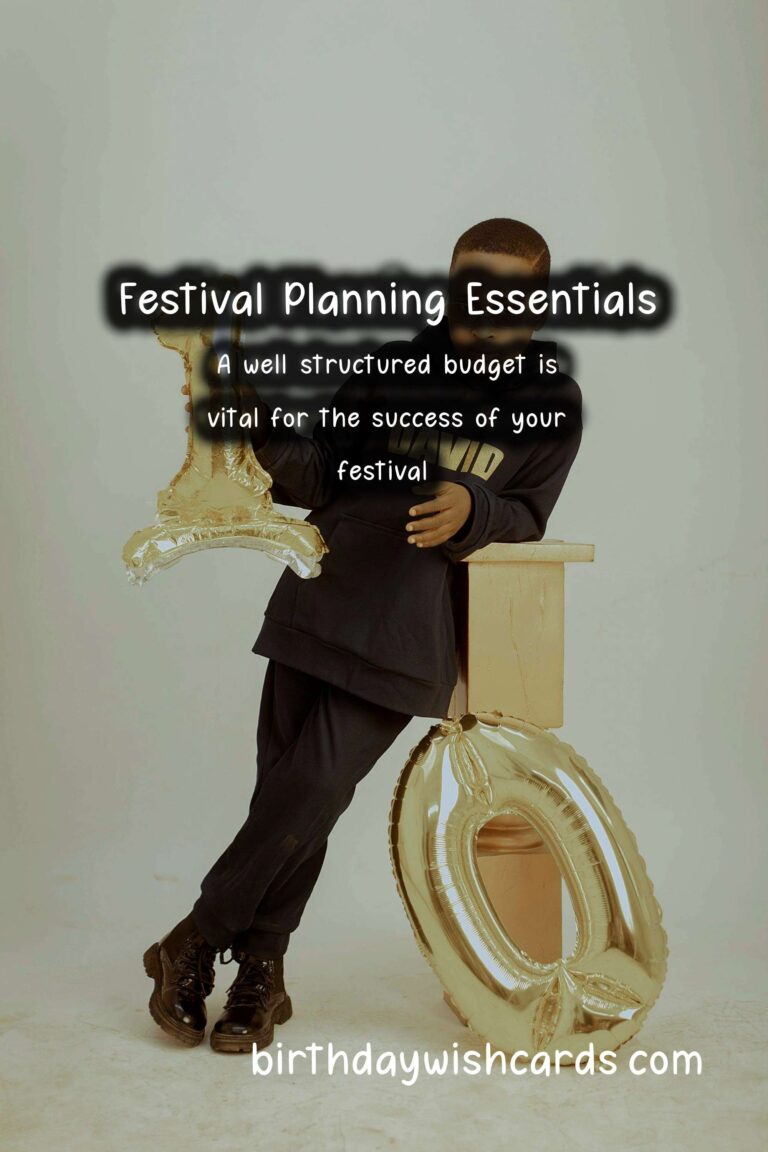

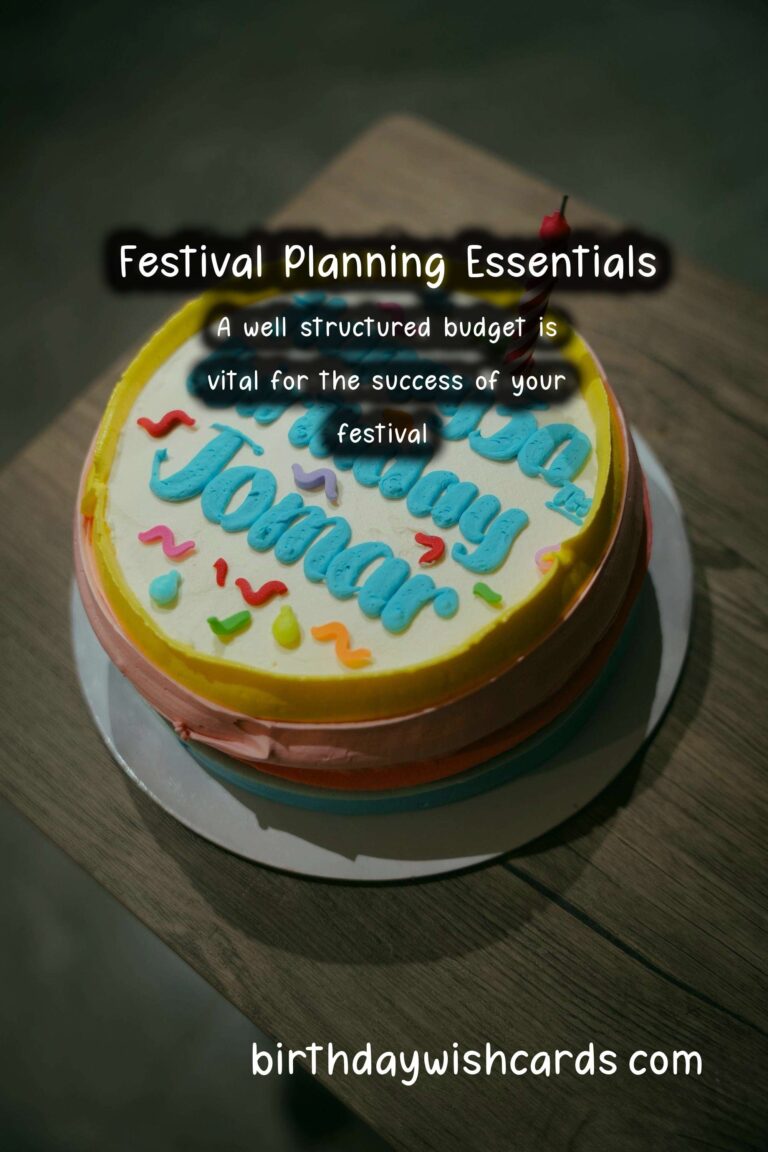

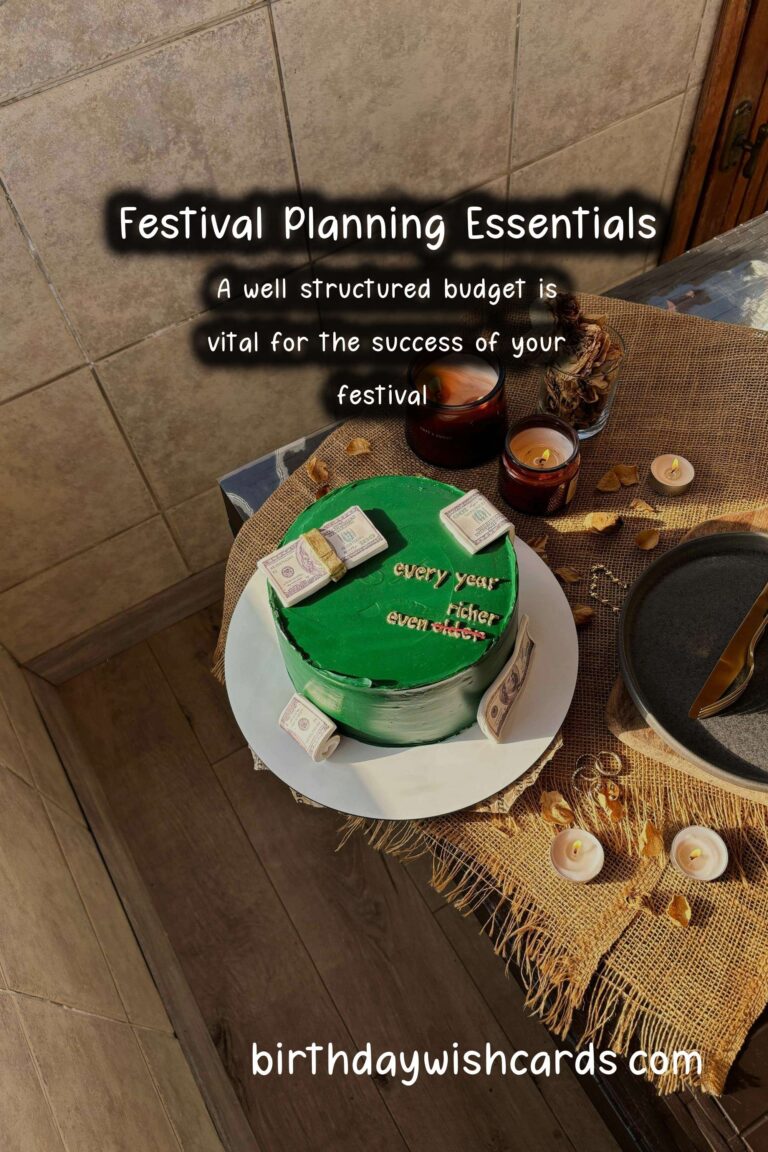
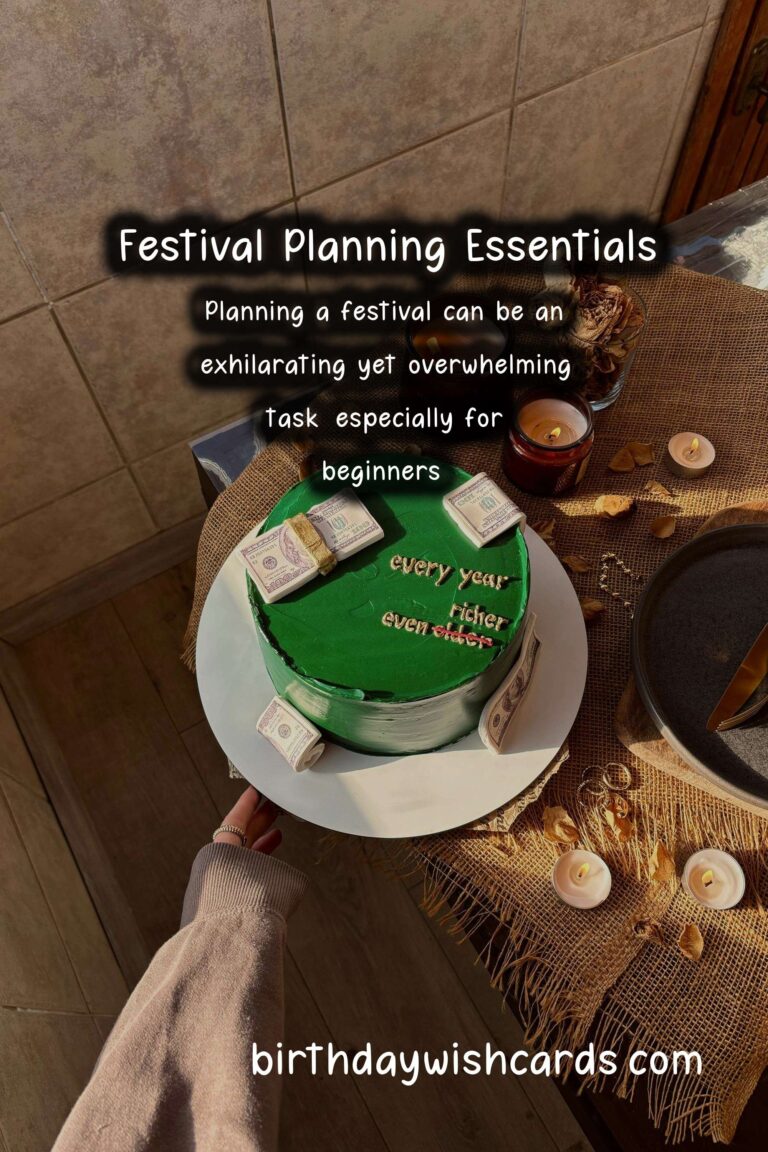
#FestivalPlanning #EventPlanning




